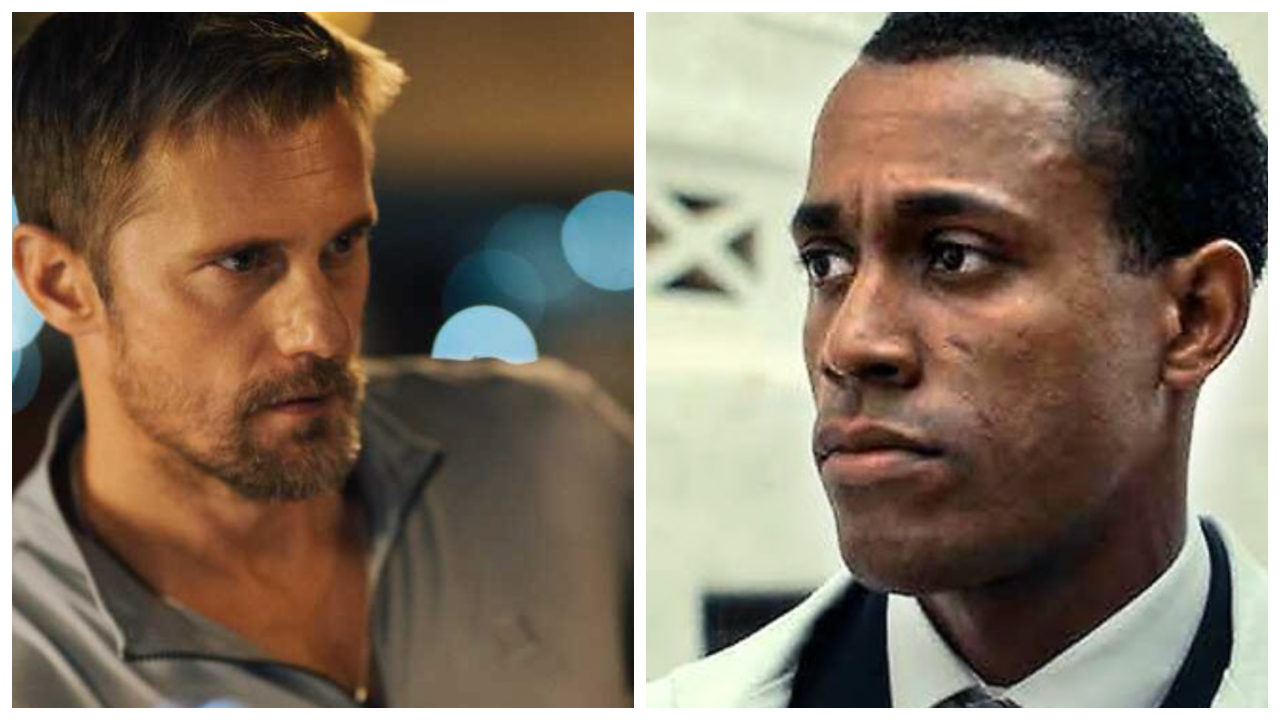I suppose if you’ve never heard their music Death Cab for Cutie has a vaguely metal or at least immoral name, but I hardly expected to hear mic’d threats of damnation from downtown’s hellfire evangelists outside the Armory last night. The contrast between the anodyne indie on tap for the evening (Ben Giibbard’s electropop side project the Postal Service in addition to his main band) and the ominous predictions greeting us at the door (we would bleed eternally because we did not accept the blood of Christ) was truly striking. Sorry Jesus, but you should know better than to make me choose between you and Jenny Lewis.
No one inside the venue was thinking about eternity, or about the future at all, that’s for damn sure. Tonight was a full return to 2003, Ben Gibbard’s annus mirabilis, when Death Cab released its commercial breakthrough, Transatlanticism, and the Postal Service (Gibbard and glitchmaster Jimmy Tamborello) released their only album, Give Up. Twenty years ago, both collections left a sizable dent in the consciousness of many young listeners, and one of them even impressed many of us over-30s. (Guess.) The setlists were both albums, played top to bottom. This was not a night for surprises.
Among era-appropriate shirts glimpsed in the crowd were The Strokes and Franz Ferdinand, but newly purchased tees celebrating the night’s event far outnumbered any relics from the past. I spent the first half of my life awash in the nostalgia of people older than me and now in the second half I’ll be watching younger people celebrate the same rites of looking backward till I’m dead I guess. And I will say this for the echo boomers (is that cheating?): If anything they are even more avid consumers than their parents. The pre-show line for merch was the longest I'd ever seen at the Armory.
The Death Cab set was a faithful and moderately animated recreation of an album I personally considered a slight letdown from The Photo Album at the time, but my DCFC judgments largely straddle the line between “not bad” and “OK” so I am not a trusted voice for Gibbard-heads to heed. Anyway, I am certainly not here to tell Transatlanticism fans that your youth was a lie. But I may be here to tell you that if Transatlanticism was not your youth, it’s pretty stingy with its truths.
It's not often I wish a songwriter was more pretentious, but Gibbard's lyrics can be too dryly diaristic, and his declarative delivery lacks the nuance to wring something profound from a plainspoken statement as self-explanatory as “So this is the new year/And I don’t feel any different.” (Gibbard’s crisp enunciation also portended the drama-clubby singing that would overrun mainstream indie—a truly paradoxical term—in the later aughts, but that’s hardly his fault.)
Death Cab are a band best experienced at one extreme or the other—through headphones or live—because you need to immerse yourself in their musical swell if you pay any attention at all. I’m not being a dick when I say they’re tasteful Coldplay—that same big enveloping sound designed to stir emotion without specifying why, but with texture privileged over tune to show they’re not too hungry for approval. “Death Cab developed a trick where they’d build and build and build without ever exploding into pure catharsis” is how Ian Cohen correctly described Transatlanticism in Pitchfork when the album turned 10, though he meant that as a compliment—I guess some people are just into edging.
The high points of the set, for me, were (unsurprisingly) the high points of the album. “The Sound of Settling” remains Transatlanticism’s melodic peak, with its thoughts on compromise and observation that “old age is just around the bend” certainly more earned now that Gibbard’s 47 and his fans aren’t far behind. (Eighties kid that I am, I still half-expect “I’ve got a hunger” to be followed by “It’s a hunger,” like in Eddie Money’s “Take Me Home Tonight.”) And “Tiny Vessels” is a remarkable bit of writing, the confession of a probably otherwise decent guy realizing what an asshole he’s been to a woman. One of Gibbard’s strengths is that he’s willing to play the heel and come clean about it. And I always dig that moment in “Expo ’86” where Gibbard reveals his vocal debt to Doug Martsch of Built to Spill, but that’s more of a me thing.
Oh, I think this is where I’m required to mention The O.C., which I believe (Googles surreptitiously) was your generation’s Beverly Hills 90210. Haha, just kidding, I know what The O.C. was. (It was your Dawson’s Creek.) OK, box checked.
So, yes, I was there for the Postal Service, who always struck me as a better use of Gibbard’s gifts. Something about the process of collaboration with Jimmy Tamborello overcame Gibbard's melodic austerity. He seemed freed from the brow-furrowed significance of his day job, and it certainly doesn’t hurt to have Jenny Lewis Emmylou-ing sweetly behind you. Lewis received thunderous cheers last night when she first opened her mouth (and multiple times afterward) because why shouldn't she?
The Postal Service set began, as Give Up does, with “The District Sleeps Alone,” centered on Gibbard’s recognition “I am finally seeing/That I was the one worth leaving”—the emo answer to Jimmy Buffett’s “It’s my own damn fault,” and Ben didn’t even have to step on a pop top to reach his epiphany. The blissful “Such Great Heights” followed; I don’t know Death Cab’s catalog well enough to say for certain that Gibbard never again wrote anything so joyous, but if he did please send me a link.
Some of the nuance of Give Up’s production was lost in the boomy, cavernous Armory, but it was still bop-to-able, and the wit shone through. (Credit the enunciation skills I dissed earlier.) “I was waiting for a cross-town train in the London Underground/ When it struck me” (an idea, not the train) is funnier than that Death Cab line about the glove compartment. And it never before occurred to me that “Sleeping In” with its “we can swim any day in November” basically responds to global warning the same way Smash Mouth did on “All Star.”
Gibbard didn't have much to say in either set. In each case he stated the name of the group and the album they were playing. With Death Cab, he called "Death of an Interior Decorator" his favorite track on Transatlanticism, “maybe because I like deep cuts.” With the Postal Service, he introduced “Nothing Better,” on which Lewis took the spot of Jen Wood in correcting Gibbard on his self-serving recollections of a relationship, as “a sad story,” though I’d always considered it a happy ending for the woman. But he was a game bandleader, drumming for a little bit during the latter set. There was even a costume change: black (for Death Cab) to white (for Postal Service).
Playing an album in its entirety live works better in some cases than others. Give Up leads with its two best tracks—a good strategy for programming an album but not for pacing a live set. “This Place Is a Prison” is as much a drag live as it is on Give Up—beers were purchased and/or urinated out during its duration, as they had been earlier during Transatlanticism’s lengthy title track. “Natural Anthem” eventually made a fine closer, though its overextended intro felt a little more bludgeoning than funky live.
Sorry to say that the encore was a letdown. Gibbard performed “Such Great Heights” again, this time on acoustic guitar, with Lewis harmonizing, in the style of the Iron and Wine cover that I’ve always found too slow and rhythmically choppy. The night ended with Death Cab returning to the stage for a game but klutzy take on Depeche Mode’s “Enjoy the Silence,” a song particularly ill-suited to Gibbard’s chirp. Maybe “Personal Jesus” would have at least won over the Christian protestors.






